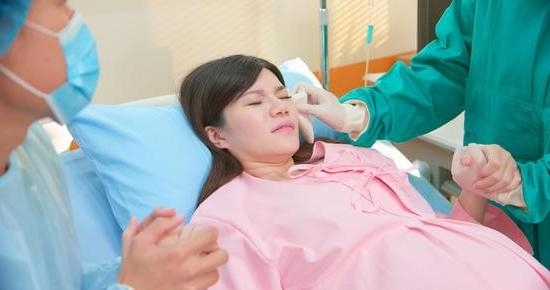Pregnancy is a time of major changes in a woman’s body, and one of the more uncomfortable symptoms that can arise is itching. Itching during pregnancy can range from mild irritation to severe discomfort, and understanding its causes and symptoms can help expectant mothers effectively manage this issue. In this article, we will explore the various aspects of itching during pregnancy, from its potential causes to ways to alleviate the discomfort.
During pregnancy, many women experience itching due to hormonal changes and stretching of the skin. However, in some cases, itching may be a sign of an underlying medical condition that requires attention. This section will delve into the symptoms of itching during pregnancy, helping pregnant women identify when their itching may be cause for concern.
Understanding the root causes of itching during pregnancy is crucial for effective management. From common skin conditions like eczema and psoriasis to liver or gallbladder issues, there are various factors that can contribute to itchiness during pregnancy. By shedding light on these causes, this section aims to provide pregnant women with valuable insights into why they may be experiencing this discomfort.
When to Seek Medical Attention
It can be common for women to experience some itching during pregnancy, especially as the skin stretches to accommodate a growing belly. However, there are times when itching during pregnancy may be a cause for concern and should prompt medical attention.
Symptoms to Look Out For
While some degree of itching is normal during pregnancy, there are certain symptoms that may indicate a more serious issue. Intense itching, particularly on the hands and feet, can be a sign of a liver condition called intrahepatic cholestasis of pregnancy (ICP).
This condition can lead to complications for both the mother and the baby, so it’s important to seek medical attention if you experience severe and persistent itching in these areas. Additionally, if you notice any changes in your skin such as redness, rash, or bumps, it’s best to consult with your healthcare provider.
When to Consult With a Doctor
If you’re experiencing intense itching that is disrupting your daily life or causing significant discomfort, it’s important to speak with your doctor. They can evaluate your symptoms and determine if further testing or treatment is necessary. Additionally, if you have a history of liver or gallbladder issues, it’s essential to notify your healthcare provider about any itching you experience during pregnancy.
Importance of Seeking Medical Attention
Seeking medical attention for itching during pregnancy is crucial for ensuring the health and safety of both the mother and the baby. Certain conditions related to severe itching can pose risks such as premature birth or fetal distress. By discussing your symptoms with a healthcare professional, you can receive proper evaluation and guidance on how to manage any underlying issues causing the itchiness. Early intervention can help prevent potential complications and provide peace of mind during this special time.
Managing Itching at Home
Itching during pregnancy is a common occurrence for many women. It can be caused by a variety of factors, including hormonal changes, stretching skin, and an increase in blood supply to the skin. The most common areas affected by itching during pregnancy are the abdomen, breasts, and thighs. Symptoms may include redness, irritation, and a feeling of dryness or roughness on the skin.
Fortunately, there are several natural remedies and tips that can help to relieve itchiness during pregnancy. One of the simplest ways to alleviate itching is to keep the skin moisturized. Using a gentle, fragrance-free moisturizer or oil can help to soothe dry and itchy skin. Taking short lukewarm baths with oatmeal or baking soda can also provide relief.
Another natural remedy for itching during pregnancy is wearing loose-fitting clothing made from breathable fabrics such as cotton. This can help to reduce irritation and allow the skin to breathe more easily. Additionally, avoiding hot showers or baths and using mild, unscented soaps can also help prevent further irritation.
In some cases, certain dietary changes may also help to alleviate itching during pregnancy. Increasing intake of foods high in essential fatty acids such as fish, nuts, and seeds can contribute to healthier skin. Staying well-hydrated by drinking plenty of water throughout the day is important for overall skin health as well.
| Natural Remedies | Tips |
|---|---|
| Moisturize regularly with fragrance-free products | Wear loose-fitting clothes made from breathable fabrics |
| Take lukewarm baths with oatmeal or baking soda | Avoid hot showers or baths and use mild, unscented soaps |
| Increase intake of foods high in essential fatty acids | Stay hydrated by drinking plenty of water throughout the day |
Medical Treatments for Itching
When natural remedies and at-home solutions don’t provide relief from itching during pregnancy, medical treatments may be necessary to manage the symptoms. It is important for pregnant women to consult with their healthcare provider before starting any medication or treatment. Here are some options available for medically managing itching during pregnancy:
1. Topical Steroids: Prescription-strength topical steroids may be recommended by a healthcare provider to reduce itching and inflammation on the skin. These medications should be used as directed and under the supervision of a healthcare professional.
2. Antihistamines: Oral antihistamines can help relieve itching by blocking histamine, which is a chemical in the body that causes itching. However, not all antihistamines are safe for use during pregnancy, so it is crucial to consult with a doctor before taking any medication.
3. Bile Acid Sequestrants: In cases where itching is caused by a liver condition called cholestasis of pregnancy, bile acid sequestrants may be prescribed to help lower the level of bile acids in the blood and relieve symptoms.
4. Ursodeoxycholic Acid (UDCA): For pregnant women diagnosed with intrahepatic cholestasis of pregnancy (ICP), UDCA may be prescribed to improve liver function and reduce symptoms such as itching.
It is important for pregnant women experiencing severe or persistent itching to seek medical attention from their healthcare provider, who can assess their individual situation and recommend appropriate treatment options. By working closely with a doctor, pregnant women can receive the necessary care and support to effectively manage itching during pregnancy while ensuring the safety of both mother and baby.
Potential Complications
Itching during pregnancy is a common and often harmless symptom, but in some cases, it can be an indicator of a more serious underlying condition. Severe itching, especially when it is constant and affects the whole body, may be a sign of a liver condition called intrahepatic cholestasis of pregnancy (ICP). ICP can increase the risk of complications for both the mother and the baby, making it essential to seek medical attention if you experience intense and persistent itching.
One of the main potential risks associated with severe itching during pregnancy is the increased risk of preterm birth. Research has shown that women with ICP have a higher likelihood of delivering prematurely. Additionally, there is an elevated risk of fetal distress and stillbirth in pregnancies affected by severe itching. These risks highlight the importance of promptly addressing any unusual or severe itching symptoms during pregnancy to ensure the well-being of both mother and baby.
In addition to preterm birth and fetal distress, severe itching during pregnancy may lead to complications such as meconium passage in utero, which can pose health risks for the baby. Meconium passage occurs when the baby releases waste while still in the womb, potentially leading to respiratory issues if it is inhaled. This further underscores why it is crucial for pregnant individuals experiencing severe itching to consult with their healthcare provider to identify and address any potential complications.
| Potential Risk | Impact |
|---|---|
| Preterm Birth | Elevated likelihood |
| Fetal Distress | Increased risk |
| Meconium Passage in Utero | Health risks for the baby |
Itching and Skin Conditions
Itching during pregnancy can be a common symptom experienced by many women, and it is often linked to various skin conditions. Understanding the relationship between these skin conditions and itching during pregnancy can help expectant mothers better manage their symptoms and seek appropriate treatment when necessary.
Common Skin Conditions During Pregnancy
One of the most common skin conditions associated with itching during pregnancy is eczema, also known as atopic dermatitis. This chronic condition causes the skin to become red, inflamed, and extremely itchy. Pregnancy hormones can exacerbate the symptoms of eczema, leading to increased itching for some women. Another prevalent skin condition that may cause itching during pregnancy is prurigo of pregnancy, which is characterized by small itchy bumps that develop on the skin.
Effects of Pregnancy Hormones
The hormonal changes that occur during pregnancy can have a significant impact on the skin, potentially leading to itching and discomfort. The increase in estrogen levels can cause the skin to become more sensitive and reactive, making pregnant women more susceptible to developing or worsening existing skin conditions. Additionally, hormonal changes can also trigger cholestasis of pregnancy, a liver condition that leads to intense itching, particularly on the palms of the hands and soles of the feet.
Seeking Proper Diagnosis and Treatment
When experiencing persistent or severe itching during pregnancy, it is crucial for women to seek proper medical evaluation and diagnosis from a healthcare professional. Itching may not always be directly related to a pre-existing skin condition but could indicate an underlying issue that requires specialized care. With accurate diagnosis, healthcare providers can develop an appropriate treatment plan tailored to each woman’s specific needs.
Understanding how common skin conditions are linked to itching during pregnancy empowers expectant mothers with valuable knowledge about managing their symptoms effectively and seeking timely medical intervention when necessary.
Preventing Itching
During pregnancy, itching can be quite common, but there are several measures that women can take to prevent or minimize this discomfort. Here are some tips for preventing itching during pregnancy:
- Stay Hydrated: Drinking plenty of water helps keep the skin hydrated, reducing the likelihood of itchiness.
- Avoid Hot Showers: Hot water can strip the skin of its natural oils, leading to dryness and itchiness. Opt for lukewarm showers instead.
- Moisturize Regularly: Using a gentle, hypoallergenic moisturizer can help maintain skin elasticity and prevent dryness and itching.
- Wear Loose-Fitting Clothing: Tight clothing can irritate the skin, so opt for loose-fitting, breathable fabrics to reduce friction and irritation.
- Avoid Harsh Chemicals: Minimize exposure to harsh chemicals found in certain skincare products or cleaning agents, as these can exacerbate itching.
In addition to these preventive measures, it’s essential for pregnant women to maintain a healthy diet rich in essential nutrients. Consuming foods high in vitamin E, such as nuts and seeds, as well as foods containing omega-3 fatty acids like salmon and flaxseeds, can contribute to overall skin health and reduce itching.
Seeking regular prenatal care is also important in preventing complications that may lead to severe itching during pregnancy. Healthcare providers can monitor a woman’s progress throughout her pregnancy and provide guidance on managing any discomfort associated with itching. By following these preventive tips and maintaining open communication with medical professionals, women can minimize the impact of itching during pregnancy on their overall well-being.
Personal Stories
In conclusion, itching during pregnancy is a common symptom that many women experience, and it can be quite uncomfortable. However, it’s important to understand the symptoms and causes of itching during pregnancy in order to know when to seek medical attention. While mild itching is usually not a cause for concern, severe or persistent itching may indicate a more serious underlying condition that requires medical treatment.
For those experiencing itching during pregnancy, there are various natural remedies and tips for relieving itchiness at home. These may include wearing loose-fitting clothing, taking lukewarm showers, and using moisturizers to keep the skin hydrated. It’s also important to avoid scratching as much as possible to prevent irritation and potential complications.
In some cases, medical treatments may be necessary to manage itching during pregnancy. It’s important to consult with a healthcare provider who can provide guidance on the best course of action.
Additionally, understanding the potential complications associated with severe itching during pregnancy is crucial for seeking timely medical intervention if needed. Overall, while itching during pregnancy can be bothersome, there are resources and support available to help alleviate discomfort and ensure a healthy outcome for both the mother and baby.
Frequently Asked Questions
When Should I Be Worried About Itching During Pregnancy?
Itching during pregnancy is common due to hormonal changes and stretching skin. However, if the itching is severe, especially on the palms and soles, it may indicate a liver condition called cholestasis, which requires medical attention.
Why Does My Whole Body Itch During Pregnancy?
Itchiness throughout the body during pregnancy can be attributed to various factors such as hormonal changes, stretching skin, and increased blood flow. In some cases, it may also be a sign of a more serious condition like cholestasis.
How Can I Relieve Itching During Pregnancy?
To relieve itching during pregnancy, it’s important to keep your skin moisturized with fragrance-free lotions or creams. Taking cool showers, wearing loose-fitting clothes, and using mild soaps can also help alleviate itchiness. If the itching is severe or persistent, consulting with a healthcare provider is recommended for further evaluation and treatment.

Welcome to my fertility blog. This is a space where I will be sharing my experiences as I navigate through the world of fertility treatments, as well as provide information and resources about fertility and pregnancy.





